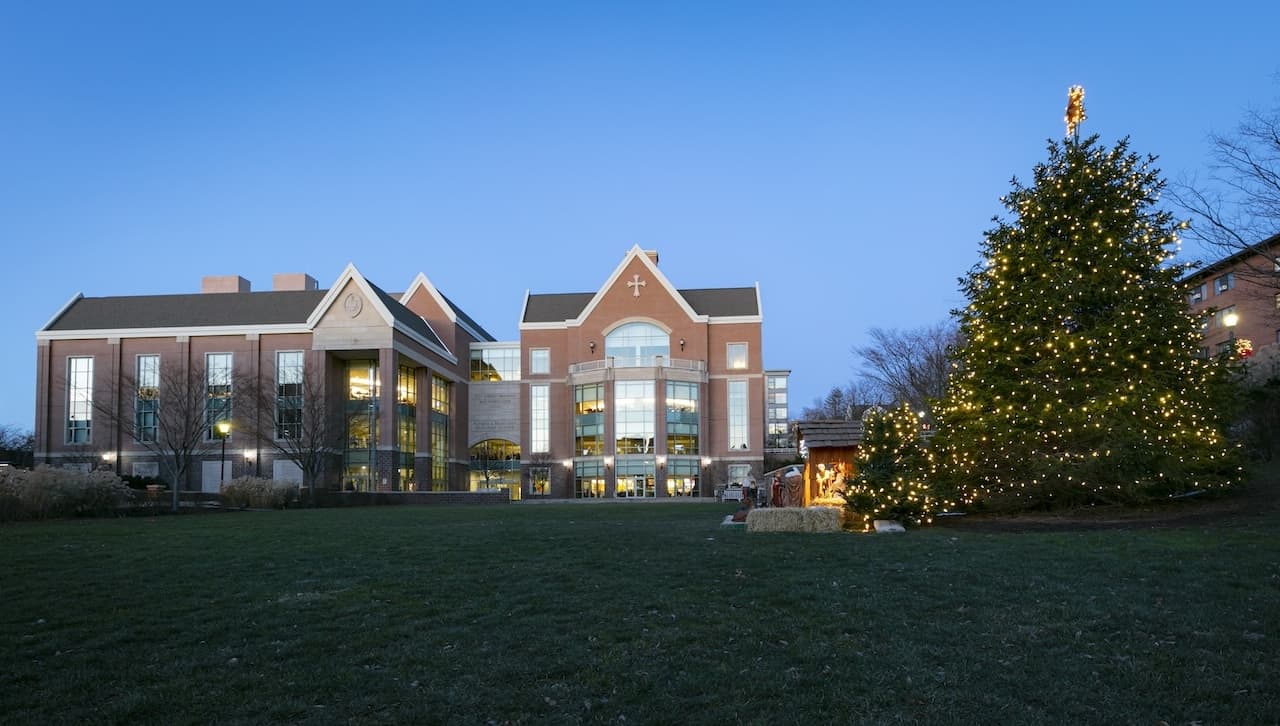Green Gift Ideas and More for Your Holiday

University of Scranton biology professors offer some tips to make your holiday gift-giving and season a little more “green” from a sustainability perspective – with many tips also saving some “green” in your wallet.
Greening Your Gifts
Janice Voltzow, Ph.D., professor and chair of the Biology Department and director of the University’s Magis Honors Program in STEM, suggests “giving personal gift certificates good for babysitting, a home-cooked meal, or house cleaning rather than buying more stuff that will accumulate. The certificates can be written on scraps of fancy paper or old wrapping paper.”
David Ingber, Ph.D., faculty specialist in the Biology Department, suggests gifting “experiences instead of items. Things like concert or event tickets, spa gift cards, cooking/art class sign ups, or park memberships can be impactful and have no upfront material costs.”
He also suggests considering digital memberships which can be customized based on the personal interests of the recipient.
“It’s another great way to go really niche and tailor a gift to the person you are giving it to, while avoiding upfront environmental costs,” said Dr. Ingber. He also suggests gifting baked goods – or even going “fossil hunting or rock hounding” for friends interested in geology or paleontology.
Both Drs. Voltzow and Ingber suggest wrapping presents in cloth sacks or re-using wrapping paper, tissue paper, ribbons and gift bags.
“This keeps them out of the landfill and prevents buying more every year. You can tear the front off of holiday cards you receive this year and use them as gift tags next year,” said Dr. Voltzow.
Greening Your Holiday
For “greening” your holiday, Dr. Voltzow’s suggestions include buying a locally-grown live tree and decorating it with re-useable, non-plastic ornaments, or with ornaments you crafted from natural, compostable materials.
Dr. Ingber suggests avoiding food waste and being mindful of leftovers.
“Don’t let good food go to waste, keep an eye on what leftovers you have in the fridge, rotating the oldest to the front so they are easily accessible. This way, you’re not letting any delicious morsels go bad, and you can cook less overall, which saves energy and money,” said Dr. Ingber.
The professors also suggest using food from local farms for your meals – and putting your outdoor lights on a timer.
“Spread all the holiday cheer you want, but fewer people are going to see your outdoor decorations at 3 a.m. Setting a timer to shut down your lights and decorations in the wee hours and then turning them back on the following evening can save you energy and effort,” said Dr. Ingber.
Bonus Holiday Health Tip
Maintaining weight between Thanksgiving and New Year’s Day is the optimum goal, according to an OpEd published in Healthcare Business Today by Joan Grossman, Ph.D., associate professor of health and human performance at The University of Scranton.






